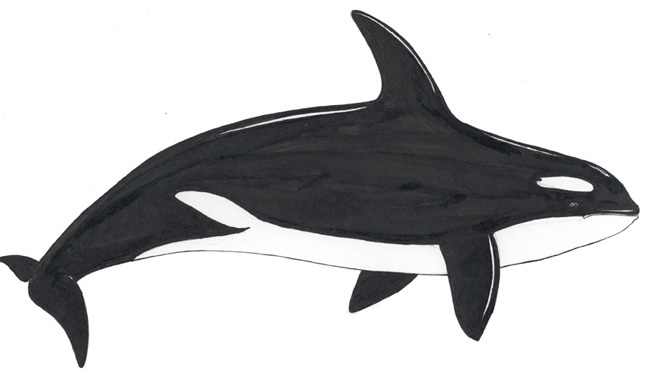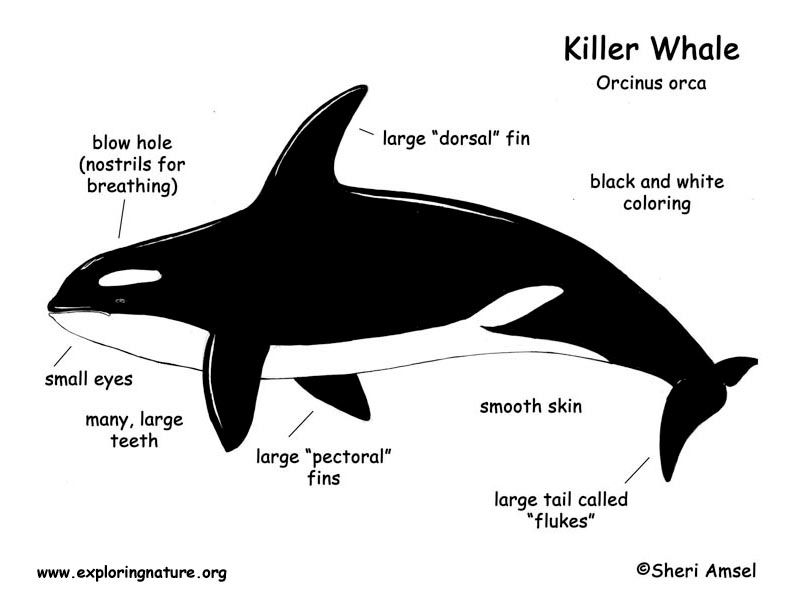

Killer whales (orcas) are found in all the oceans of the world. They are seen most often in the Arctic and Antarctic and off the west coast of the United States and Canada.
They are found in both coastal waters and out in the open ocean.
They have black and white body markings and large dorsal fins. Males grow to more than 20 feet long and can weigh up to 10 tons (20,000 pounds). Females are smaller.
Killer whales live in groups of 6 – 30 (or more) whales, called pods. Pods are believed to be led by females.
They are toothed whales and eat fish, penguins, seals, and other marine mammals, including other whales.
Their only real predator is man.
Females are pregnant about for 13 - 16 months (gestation) and have 1 calf in the fall. A newborn calf weighs about 400 pounds and stays with its mother 2 or more years.
Killer whales are thought to live about 30 years in the wild. They are listed as Lower Risk - conservation dependent on the CITES List (International List) and endangered on the U.S. Federal Endangered Species List.
Kingdom: Animalia
Phylum: Chordata
Subphylum: Vertebrata
Class: Mammalia
Order: Cetacea
Suborder: Odontoceti
Family: Delphinidae
Genus: Orcinus
Species: Orcinus orca
When you research information you must cite the reference. Citing for websites is different from citing from books, magazines and periodicals. The style of citing shown here is from the MLA Style Citations (Modern Language Association).
When citing a WEBSITE the general format is as follows.
Author Last Name, First Name(s). "Title: Subtitle of Part of Web Page, if appropriate." Title: Subtitle: Section of Page if appropriate. Sponsoring/Publishing Agency, If Given. Additional significant descriptive information. Date of Electronic Publication or other Date, such as Last Updated. Day Month Year of access < URL >.
Amsel, Sheri. "Whale (Killer) - Orca" Exploring Nature Educational Resource ©2005-2024. December 13, 2024
< http://www.exploringnature.org/db/view/Whale-Killer >

